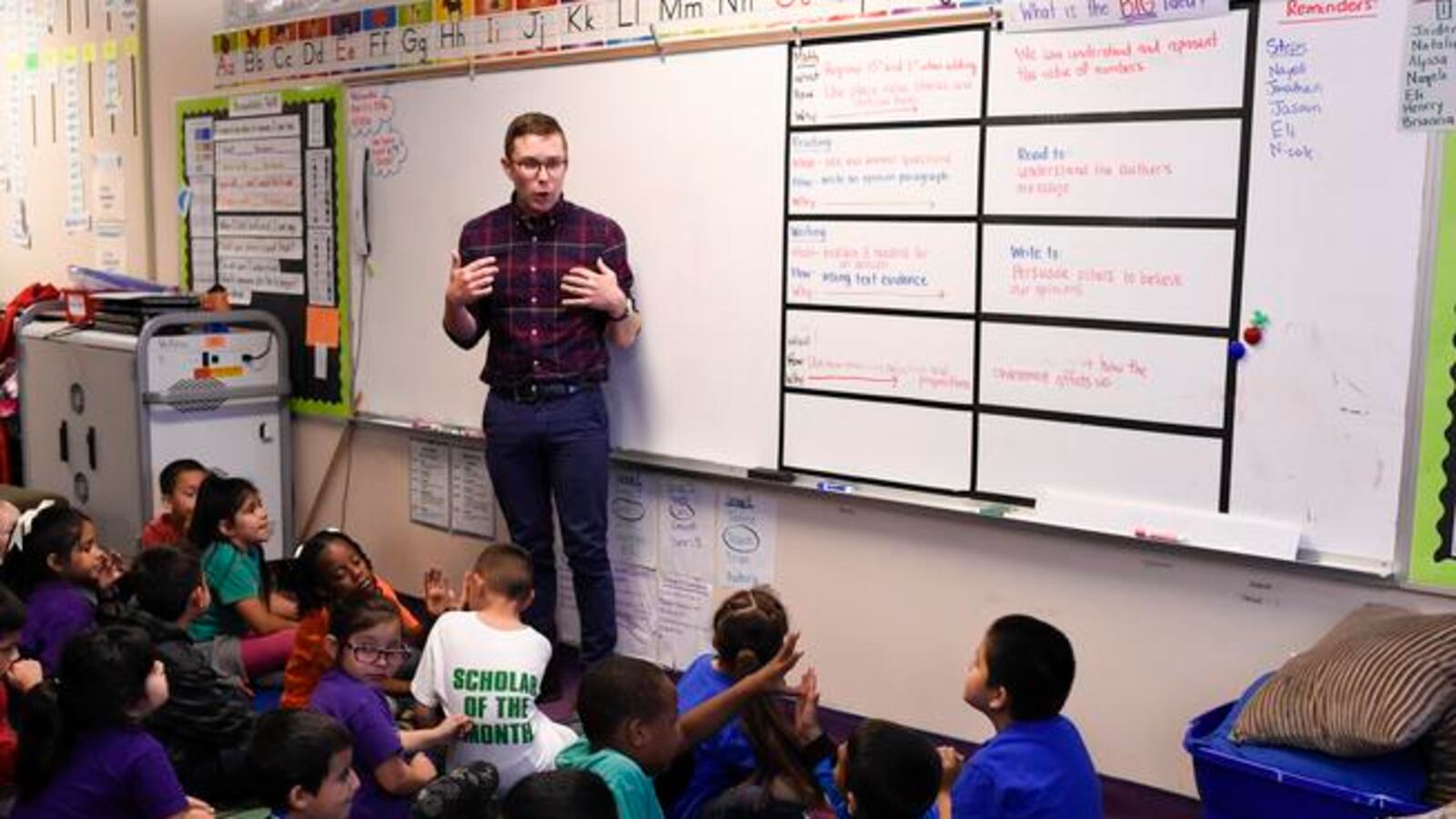Twenty Denver teachers are part of a new pilot project to invest even more resources in what the school district considers a key strategy: having teachers coach other teachers.
Denver Public Schools has a name for these teacher coaches: “senior team leads.” They are paid a stipend on top of their regular salaries to split their time between teaching in their own classrooms and observing other teachers. They give the teachers feedback, help them plan lessons, and, in some cases, formally evaluate them, just like a principal would. Data shows teachers like the approach and their students benefit from it.
A new yearlong fellowship that kicked off Monday will give a small number of these teacher coaches monthly training on how to get better at a role district officials say is all too rare in public education. The Thrive Fellowship will include conversations with leadership experts and opportunities for teachers to learn from each other what’s working in their schools.
Some of that was already happening in the first hour of the fellowship’s inaugural get-together. By way of introduction, the teachers shared a memorable experience they’d had in the role. Several talked about what they did to break through to a resistant teacher. One shared how she organized “family dinners” for teachers to get to know one another outside of work.
Yet another talked about using her dual role to bring together her school’s “disjointed” special education department and come up with a better way to teach students with disabilities.
“Because I was alongside and teaching with my other team members, it was what we need to kickstart and become a more collaborative team,” teacher Rosie Britt said.
Superintendent Tom Boasberg called the fellowship “a very intentional investment.”
“Each one of these leaders has an impact – a large impact,” he said of the 20 teachers. “So how do we help them learn and grow to have that impact be as powerful as possible?”
Denver Public Schools has already invested heavily in teacher coaching. Officially known as “teacher leadership and collaboration,” or TLC, it began in the 2013-14 school year as a grant-funded pilot with 51 teacher coaches at 14 schools. It’s now in nearly all of the more than 160 district-run schools, and there are more than 500 teachers coaching other teachers.
The expansion was partly funded by a tax increase passed by Denver voters in 2016. The Thrive Fellowship is being funded by a $2 million grant from Bloomberg Philanthropies, the charitable foundation of former New York City Mayor Michael Bloomberg. The grant is also funding other leadership work and will pay for a second fellowship cohort in the 2019-20 school year focused on special education teacher coaches. Being a special education teacher can be isolating, district officials explained, and some of the district’s biggest achievement gaps are between students with and without disabilities.
The district created the teacher coach role in part to encourage great teachers to stay in the classroom rather than leave to become assistant principals or principals. The ultimate goal, officials say, is to boost student achievement by helping teachers get better at what they do.
District officials have been tracking whether that’s happening. They’ve found that the students of teachers who were supported by coaches for two or more years made more academic progress on state literacy and math tests than the students of teachers who were coached for less time or not coached at all, according to data recently presented to the school board.
And survey results show teachers like the model. When asked which leaders at their school were effective, 89 percent of teachers said the teacher who coaches them was an effective leader. Only 82 percent said their principal was effective.
The idea of the fellowship is to raise those numbers even higher, district officials said.
Pete Martinez is one of the 20 teachers in the fellowship. He works at Joe Shoemaker Elementary in southeast Denver, where he spends half his time coaching teachers and half his time teaching kindergarten and first-grade students who are struggling in reading.
He said the dual role is most powerful when teachers “can see a support partner, a coach, that is sometimes teaching beside them and in many ways owning the success of their kids.” He hopes the fellowship gives him and the other teachers time to pick each others’ brains.
“What are other schools grappling with?” Martinez said. “What are the solutions they are already thinking about and how can we transfer that to other schools, to my own building?”

